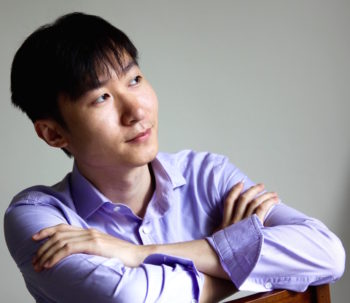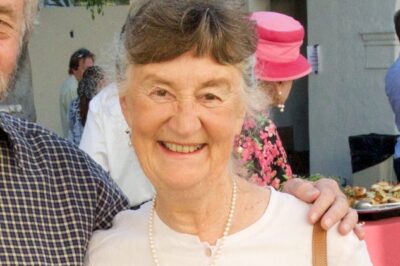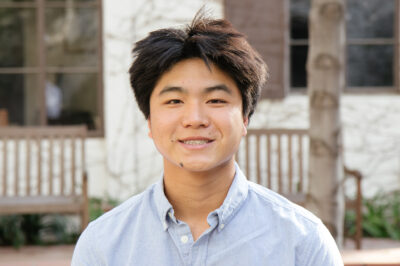The Secret Piano⼁Meet Peter Fang
Peter Fang joins PCM for The Secret Piano on April 23, the final Musical Interlude of the 2021-2022 season.
A first prize winner at the 2012 Steinway Piano Competition, Peter has performed at Lincoln Center in New York, Symphony Hall in Boston, Universität Mozarteum in Austria, and National Concert Hall in Taipei, as well as other prestigious venues.
Peter holds degrees from the New England Conservatory, The Juilliard School, and Yale University. He is currently pursuing a Doctoral of Musical Arts degree in piano performance at USC, where he studies with Jeffrey Kahane.

PCM: Who or what inspired you to pursue a career in music and who or what have been the most important influences on your musical life?
PF: I was born into a musical family, and my early childhood was surrounded by many piano students who came to my father’s teaching studio for lessons. At the age of 4, I naturally thought that piano playing was part of everyone’s daily life, just as eating and sleeping since almost all people I knew could play it. I remember that besides watching Disney movies and playing with my pet Shody, I loved to transcribe tunes I heard from famous films such as Titanic, E.T., and Cinema Paradiso on the piano, and I also liked to listen to CD recordings and pretended to be a conductor of an imaginary symphony orchestra.
My father was happy to see my passion for music. Hence, as my first piano teacher, he told me stories about great composers and introduced me to phenomenal recordings of legendary pianists such as Vladimir Horowitz, Arthur Rubinstein, and Claudio Arrau, who became my lifelong idols and gave me huge motivation to pursue a career in piano performing. At the age of 7, I did my first public concert. Since then, after a few successful performances, I have realized that “playing for people” has become the core reason I want to keep performing on stage. Music is a powerful, inspiring, and magical form of storytelling, and I always thoroughly enjoy sharing it with my beloved audience.
PCM: You were born in Taiwan and began your musical studies at the age of 4. Later, in 2010, you moved to the US when you enrolled in the Music Program of New England Conservatory at the Walnut Hill School. When you moved to Boston, did you notice any significant differences between the approach to music study in Taiwan and in the US? Are there composers who are studied more commonly in Taiwan versus in the US?
PF: All kinds of arts come from human nature, and music is the language of the soul that can carry feelings and thoughts across various identities, races, and cultures. America is a much larger nation than Taiwan, and it is culturally more diverse. When I first moved from Taiwan to Boston, the most significant change for me was that I had more opportunities to meet people from different backgrounds and work with artists from different cultures. I also got much inspiration from artworks in museums, music I listened to in live concerts, friends I met, and things I experienced at school.
The music education I received in Taiwan was good and solid, so I became a young professional pianist who can play beautifully in concerts. After coming to the States to study further, the diverse and vibrant environment has broadened my sense of aesthetics and musicality. I observed things around me and learned from my peers and teachers to be more creative and innovative, which all helped me grow to become a more thoughtful and artistic musician. I did learn and play works by some native composers when I studied in Taiwan, just as here in the States, I have learned jazz and contemporary works by American composers. Though I still have preferences, I have tried not to focus on specific genres and composers, so I can always access a diverse world of sounds and styles.
PCM: Through your performances and recordings, you’ve shown your commitment to promoting works by contemporary composers. As a 21st Century pianist, how do you balance performing the “classic” piano repertoire with introducing audiences to new music?
PF: I’m an open-minded and inquisitive person as I always like to try something new before getting bored. We all know that any “classic” used to be “new” in the past—Mozart’s works were pop music to his listeners in the eighteenth century, and people who were mad about Stravinsky’s Rite of Spring would want to kill themselves if they hear Metastasis by Xenakis. Music-making and listening are so much about personal taste and subjectivity, so how I have tried to “balance” my performing repertoire is to “play everything.” Generally, we enjoy hearing Chopin, just like most children love fries. Still, I know many people are passionate about contemporary music—some might be as famous after 100 years as Beethoven’s symphonies. So, it’s not surprising that durian can beat fries sometimes, and as a chef of music, my job is to best offer various cuisines to my savvy customers.
PCM: The two pieces on this concert program, the Goldberg Variations and Piano Sonata No. 32 in C minor, Op. 111, are monumental in the piano repertoire. They are the apotheosis of each composer – Bach and Beethoven – and each era – Baroque and Classical. When and why did you decide to learn these two pieces?
PF: I have performed the two masterpieces many times but never together in one concert. So, I look forward to playing them both!
The Goldberg Variations is an incredibly profound and compelling musical journey that begins with a bitter-sweet aria, followed by 30 variations based on the same storyline. At the same time, each of them conveys different perspectives, emotions, and expressions. The 75-minute-long work is so elaborately composed, and I always perceive the principle of “Hedonism” as I play it—a perfect musical representation of pure pleasure, happiness, and even ecstasy. Of course, we hear struggle and sentimentality, especially in the minor variations, but I personally feel that sincerity, virtue, and love are the primary characters.
Interestingly, we hear many beautiful moments in the Goldberg Variations that echo the transcendental second movement of Beethoven’s Op. 111—the music also portrays similar ethical values through the form of variation. On the contrary, the emotionally intense first movement of the Op. 111 is a world of tragedy, resistance, and madness so it will represent the “dark side” of this concert! I learned the two masterpieces in my last year of college. The reason was that I always aspire to learn any music that speaks to my heart, and I have much desire to express my feelings through a diverse repertoire.
PCM: In her book, The Secret Piano, Zhu Xiao-Mei writes the following about the Goldberg Variations: “The [melody] of the closing aria is that of the opening aria, and yet it is not the same. We are witness not to an eternal return, but to a transformation.” How has the process of learning and playing the Goldberg Variations, and also Opus 111, transformed you as a musician and as an individual?
PF: I have always been inspired by learning and playing immortal works of great composers. Zhu Xiao-Mei’s statement reminds me of the three metamorphoses by Friedrich Nietzsche—camel, lion, and child, symbolizing a person’s transformative qualities in different stages of his life. When I started learning the pieces, I had been trapped in the camel stage for a long time: I struggled to solve problems and overcome difficulties, like a surviving camel in a desert. Several technically challenging and emotionally overwhelming passages from Goldberg and Beethoven’s Op. 111 have transformed me into the lion, representing courage, ambition, and strength. In my opinion, the last aria from the Goldberg Variations possibly embodies the child—completely free, true to self, and without burdens, and its meanings have greatly influenced me as an individual. These stages of transformation certainly don’t only apply to musicians, they happen in every person’s self-discovery journey.
Visit our event page for more information about the concert and to purchase tickets.



